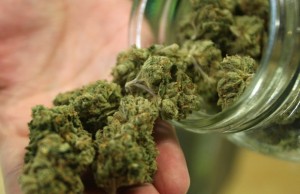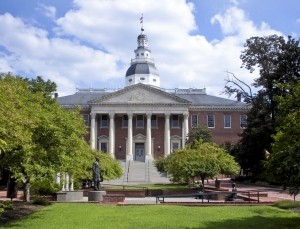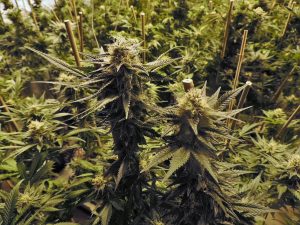 This week in Annapolis lawmakers debated bill that would pave the way for the legal recreational use of marijuana in Maryland for any person over the age of 21. Senate bill 1039 proposes an amendment to the state constitution, which should signal just how serious lawmakers are about legalization becoming state policy. Along with the ability to consume marijuana, the law would allow for the possession of up to 1 ounce of flower and 5 grams of concentrate. State residents would also be permitted to grow up to 6 marijuana plants in their home or other private property, as long at the cultivation could not be viewed by the public without the use of visual aids. A small caveat to legally growing under the proposed law is that no private citizen would be permitted to have more than 3 mature and flowering plants at one time, thus the process of cultivation would have to be spread over time. The limits on the amount of pot that a person may legally possess do not apply to that which is grown in the home. In other words a citizen could have three flowering plants that yield over a pound of pot, and it would be legal to possess all of it inside private propery. Other provisions of the senate bill include the ability to share up 5 grams of cannabis with another person who is over the age of 21. Sharing means not receiving anything of value in exchange for the pot, so no bartering of t-shirts, concert tickets etc. would be allowed.
This week in Annapolis lawmakers debated bill that would pave the way for the legal recreational use of marijuana in Maryland for any person over the age of 21. Senate bill 1039 proposes an amendment to the state constitution, which should signal just how serious lawmakers are about legalization becoming state policy. Along with the ability to consume marijuana, the law would allow for the possession of up to 1 ounce of flower and 5 grams of concentrate. State residents would also be permitted to grow up to 6 marijuana plants in their home or other private property, as long at the cultivation could not be viewed by the public without the use of visual aids. A small caveat to legally growing under the proposed law is that no private citizen would be permitted to have more than 3 mature and flowering plants at one time, thus the process of cultivation would have to be spread over time. The limits on the amount of pot that a person may legally possess do not apply to that which is grown in the home. In other words a citizen could have three flowering plants that yield over a pound of pot, and it would be legal to possess all of it inside private propery. Other provisions of the senate bill include the ability to share up 5 grams of cannabis with another person who is over the age of 21. Sharing means not receiving anything of value in exchange for the pot, so no bartering of t-shirts, concert tickets etc. would be allowed.
If and when the bill eventually becomes law (whether it be this year or some time in the future) there will be limits on what legalizing marijuana actually means, and also some protections for those who choose to use marijuana. Legalization does not mean employers would have to make accommodations for employers who want to use cannabis at the workplace, and these employers could decide to ban the possession of cannabis at work. Employers would be protected if they decided to fire an employee for violating a workplace drug policy that barred marijuana use. Laws that currently apply to tobacco smoking in public places would also apply to cannabis under the new proposed legislation. A business that permits tobacco smoking on its premises could also allow pot smoking as long as there is no access by individuals under the age of 21 and the business is compliant with local ordinances. Another important provision is one that bars a landlord from prohibiting tenants from consuming cannabis in forms other than smoking. Most residential leases have provisions barring the use of drugs on the building property, but marijuana would not be considered a drug under the proposed law.
In addition to establishing basic regulations for recreational marijuana, the bill would grant authority to the General Assembly and the State Comptroller to establish licensing and taxing regulations for the marijuana commerce. Lawmakers wrote into the bill that their goals in crafting cannabis policy are to remove the production and distribution of cannabis from the illegal market, and to eradicate profits generated for criminal enterprises through the sale of marijuana. In addition lawmakers will emphasize the goal of keeping marijuana out of the hands of individuals under the age of 21.
 Criminal Defense Lawyer Blog
Criminal Defense Lawyer Blog









